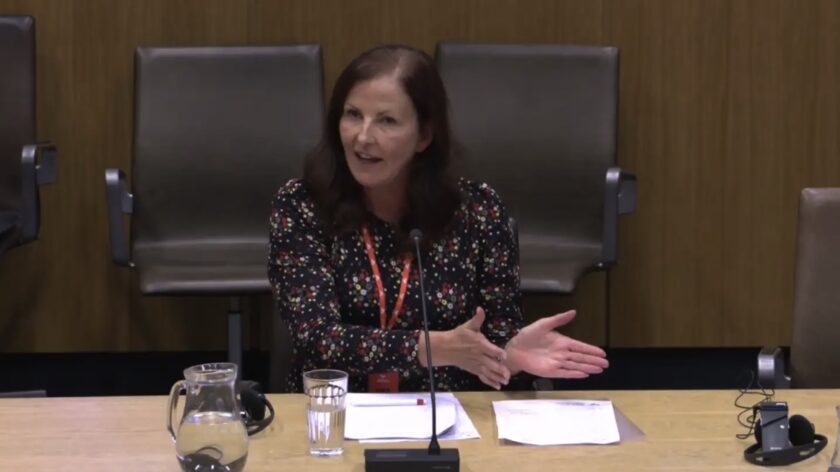Employment practices leave disabled workers too scared to return to jobs

Disabled people’s experiences of “horrific” employment practices are leaving them too scared to re-enter the Labour market, a committee heard.
Debbie Foster, a professor at Cardiff University, gave evidence as the Senedd’s equality committee began a new inquiry on disability and employment in Wales.
She criticised poor employment practices, saying: “Some of them are really, really horrific – they should not be happening. They undermine the confidence of people who are then too scared to re-enter the Labour market.”
Prof Foster raised disabled people’s concerns about difficulty accessing reasonable adjustments at work as she warned that employers do not understand equalities law.
She told committee members that too often people declaring a disability or health condition are “filtered out” of recruitment processes.
‘Employment gap’
Official figures for 2022 showed the disability employment gap – the difference in employment rates between disabled and non-disabled people – in Wales was 32.3%.
This was higher than Scotland (31.6%) and the UK average (29.8%), with disabled people in Blaenau Gwent (46.8%) and Neath Port Talbot (44.5%) facing additional barriers.
Prof Foster, who chairs the Welsh Government’s disability rights task force, authored a report, entitled Locked out, about the impact of the pandemic on disabled people.
In her evidence paper, she said only 40 employers in Wales have achieved Disability Confident leadership status, with just 12 in the private sector.
The academic warned that the Disability Confident scheme has been “tarnished” through association with the Department for Work and Pensions.
She suggested Wales could bring forward a kitemark scheme and she advocated appointing a disability rights commissioner for Wales.
‘Bureaucratic’
Prof Foster described the UK Government’s Access to Work scheme, which aims to help disabled people get or stay in work, as a well-kept secret that leads to good outcomes.
But she warned that the scheme has proved “incredibly bureaucratic” and “much too slow”.
Asked about self-employment, she raised evidence that some disabled people become self-employed because the Labour market will not accommodate them.
“And we should never see self-employment as an excuse for the Labour market not being accessible enough,” she told the meeting on September 30.
Prof Foster, a professor in employment relations and diversity at Cardiff business school, said disabled people are being “set up to fail” without the necessary support.
‘Demonised’
Jenny Rathbone, who chairs the equality committee, was concerned by the slow pace of progress on addressing the disability employment gap.
She warned: “As a nation, we’re missing out in terms of the skills disabled people can offer.”
Prof Foster agreed, saying: “We can’t just keep having more and more inquiries into the disability employment gap … and not say we need to put our money where our mouth is.”
Calling for more investment, she told the committee that employment schemes, such as Disability Confident and Access to Work, have been run “on a shoestring”.
Prof Foster welcomed a change in government at Westminster as she warned that disabled people have been “horribly demonised” in recent years.
‘Exclusion’
She said: “We should not be blaming the victims who can’t get into the Labour market because of discrimination and exclusion.”
The sociologist pointed to deprivation, rurality, transport links and a relative lack of professional services as reasons for Wales’ wider disability employment gap.
Prof Foster acknowledged that the work of the disability rights task force has “drifted” as she warned that organisations in the sector lack capacity and are “constantly firefighting”.
“They just don’t have the funding and support,” she said, expressing pessimism about the task force recommendations being delivered with a Senedd election looming in 2026.
She also raised concerns about work “slipping” on a Welsh Government commitment to incorporate the UN convention on disabled people’s rights into Welsh law.
By Chris Haines, ICNN Senedd reporter
Spotted something? Got a story? Email: [email protected]
Latest News
